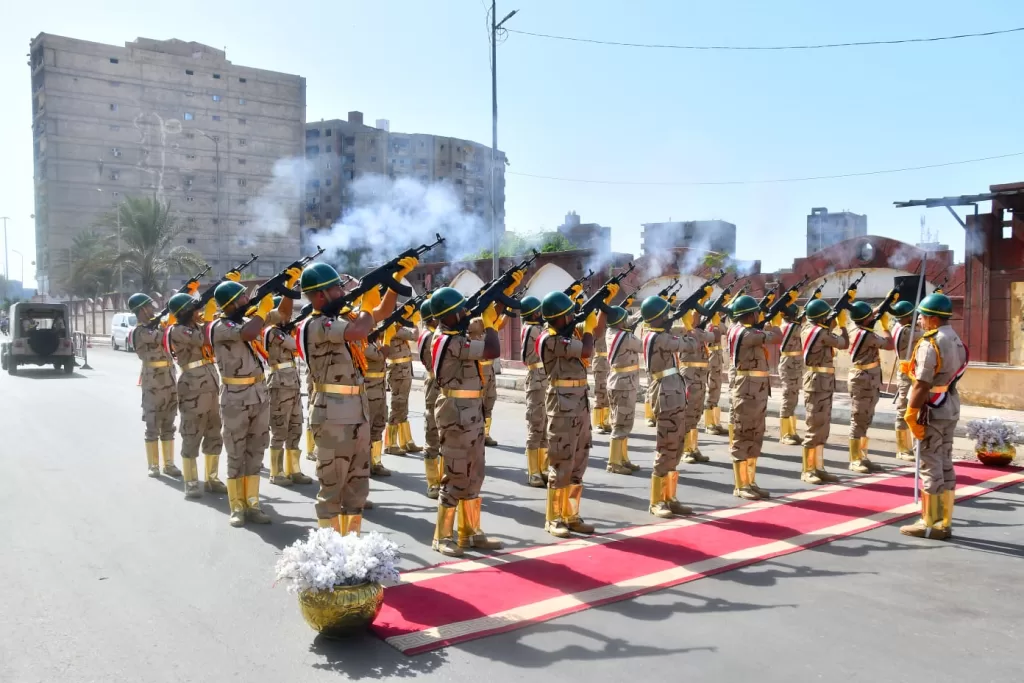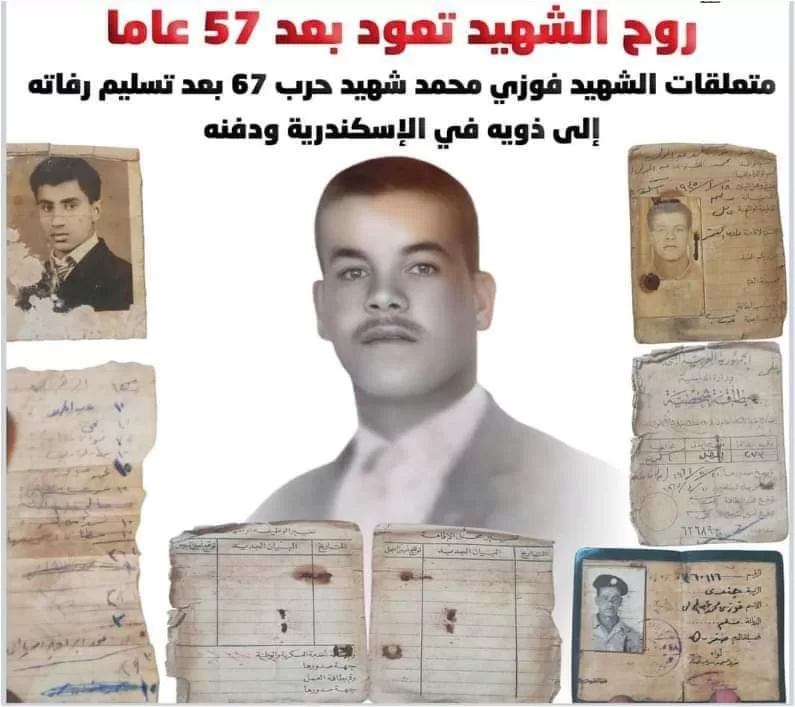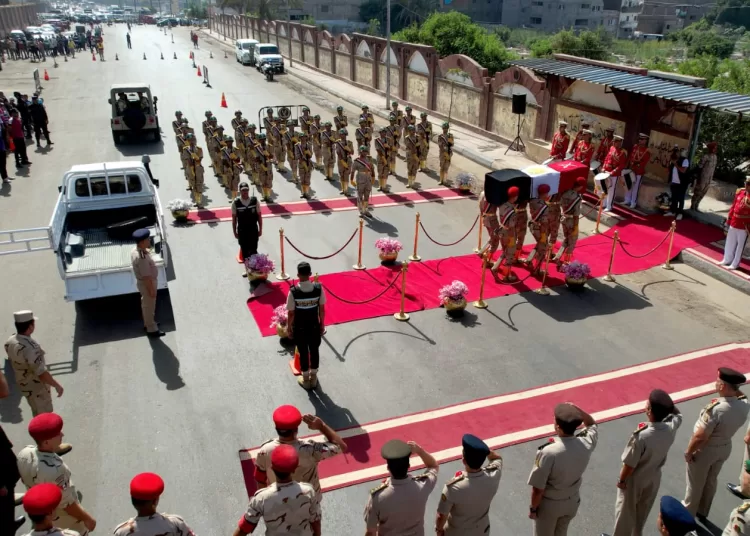By Sarah Saad
Army soldier, Fawzi Mohamed Abdel Mawla, disappeared during the 1967 war. In July this year, however, his remains were finally found.
A huge number of residents of the northern coastal city of Alexandria and Egypt’s other cities showed up for his funeral to honour his heroism and sacrifices for his nation.
A grand military funeral was held for Abdel Mawla whose remains were found in Sinai, 57 years after his disappearance.

The funeral’s procession departed from Sunani Mosque in Dekheila, in the western part of Alexandria.
Abdel Mawla’s family members were present in the funeral, along with a delegation from the Ministry of Religious Endowments.
The remains were then buried in the family tomb, a few metres away from the mosque.
The funeral was held with full military honours, including a 21-gun-shot salute to the remains of the heroic soldier. The funeral was also attended by the commander of the Northern Military Region.
Found in Sinai
Abdel Mawla’s remains were found last July by a civilian institution in Hassana area of central Sinai.
His official documents and some of his belongings were also found beside the remains.
This was when the authorities notified his family and returned the deceased soldier’s personal belongings.

War missing
Hajj Abdel Mawla Mohamed Ali al-Mawla Abu Shouk, the soldier’s younger brother, said his elder brother died when he was 20 years old.
“He joined the Armed Forces to honour his national duties,” Abu Shouk told Egyptian Mail.
He revealed that his brother had fought in Yemen at the beginning of his service in the Egyptian military.
After returning from the Yemen War, Abdel Mawla went home on a 28-day leave, during which he got married, and then returned to his barracks.
He then stopped sending letters to his family.
“We were then told that he was among the war missing,” his younger brother said.
Social media photos
Abu Shouk noted that a funeral was held at the time for his brother, even in the absence of his remains.
Nevertheless, in July this year, the family was surprised when a junior family member came across old photos of the deceased soldier on social media.
The same page, on which the photos were published, announced the discovery of Abdel Mawla’s remains along with his personal belongings.
DNA
After verifying the photos and belongings, Abu Shouk travelled to the Command of the Northern Military Region in Alexandria, where he was asked to go to the General Secretariat of the Armed Forces in Cairo.
Abdel Mawla’s family then received a phone call through which it was informed that the deceased soldier’s remains were present in the Suez Military Hospital.
A DNA test was requested from one of the soldier’s brothers, and the joyful surprise came when the test result confirmed links with the remains found earlier.
This was happy news for Abdel Mawla’s family which expressed gratefulness to the Armed Forces for the efforts they made in safeguarding the arrival of the soldier’s remains to his family.






Discussion about this post